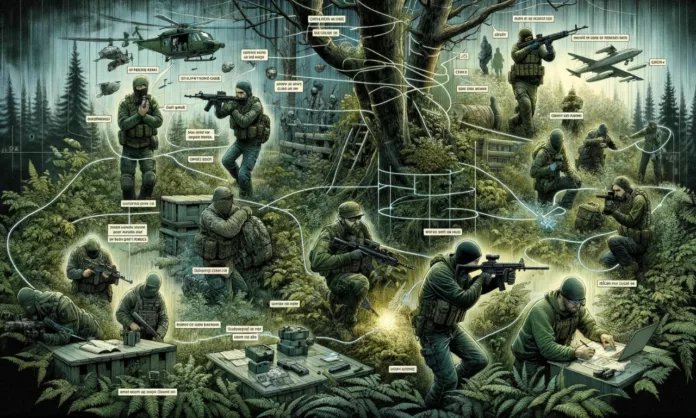When facing a situation where capture is imminent, especially in contexts such as military operations, wilderness survival, or even in certain civil scenarios, there are specific actions and considerations that can significantly impact one’s safety, survival, and the possibility of escape or rescue. These guidelines are drawn from various sources including military evasion manuals, survival expert advice, and civil emergency protocols. The actions can be broadly categorized into mental preparation, physical actions, and post-capture strategies.
Table of Contents
1. Mental Preparation
Mental resilience and a clear mind are your first line of defense in high-stress situations like imminent capture.
- Stay Calm: Panic can cloud judgment and lead to poor decisions. Deep breathing can help manage panic.
- Assess the Situation: Quickly and accurately assessing your surroundings and the situation can provide possible avenues for evasion or hiding.
- Accept the Situation: Acknowledging the reality of the situation can help in focusing on survival and escape strategies rather than denial.
2. Physical Actions Before Capture
If there’s still a chance to evade capture, taking immediate and thoughtful actions can make a significant difference.
- Evasion: If possible, use terrain, darkness, or obstacles to your advantage to evade your pursuers.
- Concealment: Hide yourself and any equipment that can be used to track you. Natural foliage, terrain depressions, or built structures can offer concealment.
- Leave No Trace: Minimize your tracks, disturbances to the environment, and noise to avoid detection.
- Destroy Sensitive Material: If carrying sensitive or incriminating information, destroy it if capture is unavoidable to prevent it from falling into the wrong hands.
- Signal for Help: If in a scenario where rescue is possible, use prearranged signals or universally recognized distress signals when safe to do so.
3. Immediate Actions Upon Capture
In the event that capture cannot be avoided, certain actions can help in protecting one’s safety and integrity during captivity.
- Follow the Captor’s Instructions: Resistance can lead to harm. It’s often safer to comply, especially in the initial stages of capture.
- Observe and Remember Details: Information about the captors, location, and circumstances can be valuable for later escape attempts or for intelligence purposes if rescued.
- Protect Personal Information: Disclose only what is absolutely necessary. In military contexts, this might mean adhering to the Geneva Conventions’ guidelines of name, rank, service number, and date of birth.
- Maintain Dignity: Keeping a sense of self-respect and dignity can be important for psychological resilience.
4. Long-Term Strategies
If escape is not immediately possible, preparing for a longer-term captivity is crucial.
- Build Rapport: If safe and feasible, building a rapport with captors can improve conditions or even create escape opportunities.
- Stay Healthy: Maintain your physical health as much as possible by staying active, consuming available food and water, and attending to medical needs.
- Stay Mentally Active: Engage in mental exercises, recall books, stories, or engage in silent prayer or meditation to keep the mind sharp and focused.
5. Legal and Ethical Considerations
In all actions, consider the legal and ethical implications. This is particularly relevant in international or military conflicts, where certain rights and protections might apply under international law.
Conclusion
The prospect of capture, whether in a military, wilderness survival, or civil scenario, requires a multifaceted approach that includes mental preparation, physical evasion, and strategic planning for the possibility of long-term captivity. Each situation is unique, and the best actions depend on the specific circumstances, including the environment, the captors, and available resources. Resilience, presence of mind, and a clear understanding of one’s rights and options are critical in navigating and surviving such challenging situations.

